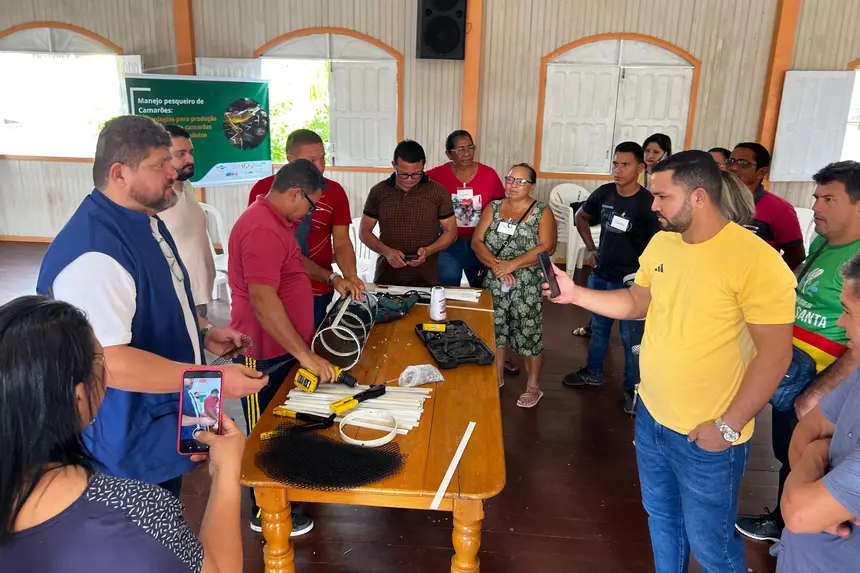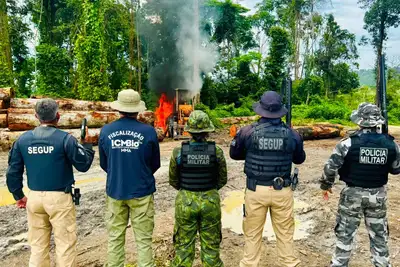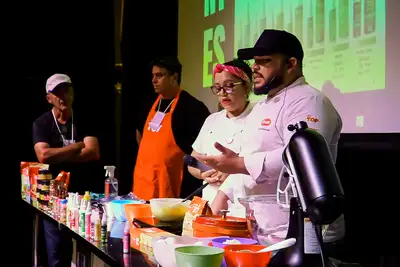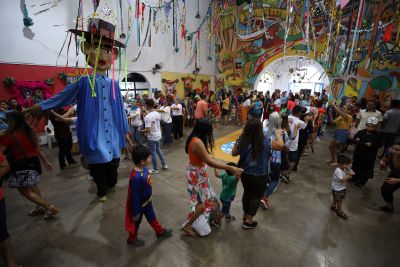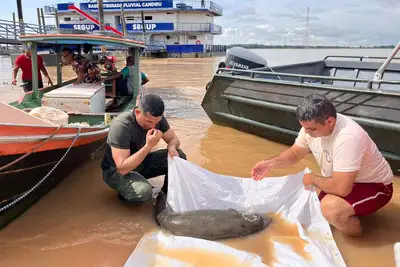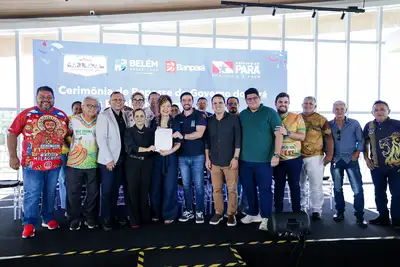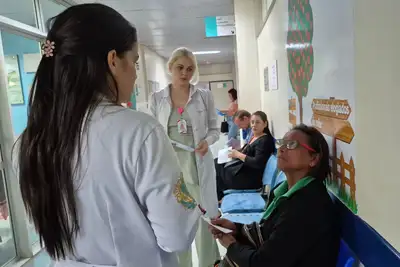With mobilization from Emater, event updates fishermen in Afuá about Amazon shrimp
Initiative addresses practical and theoretical knowledge about traditional matapis, handcrafted with palm fibers, among other topics
On Marajó Island, fishermen participate in another moment of debate and training on the capture of Amazon shrimp, from Thursday (22) to this Friday (23), in the municipality of Afuá. They are accompanied by specialists from the local office of the Technical Assistance and Rural Extension Company of the State of Pará (Emater), among other institutions.
The event "Workshop on Shrimp Capture," promoted by the unit of the Brazilian Agricultural Research Corporation (Embrapa) from Amapá, a neighboring state, and other institutional partners, at the hall of the Parish of Our Lady of Conception, in the center of the municipality, is a development of a multigovernmental movement and civil society that started in the country in 2023 with the aim of protecting the production chain of Macrobrachium amazonicum in the Amazon River estuary.
In Pará, meetings, debates, and technological diffusion have been refining the topic, always with the presence of Emater, so that public agents and the fishermen themselves can build, together, proposals for legislative modernization with an understanding of valuing traditions, environmental preservation, food security, and sustainable development.
"We are looking forward to the imminent publication of a decree from the MPA [Ministry of Fishing and Aquaculture] that updates the criteria, regulates, with the definition of defense periods and permitted materials," comments the head of the local Emater office in Afuá, agronomist Alfredo Rosas, who holds a postgraduate degree in Environmental Soil Management.
Workshop
About 20 leaders and representatives from associations and cooperatives of the communities Santo Antônio, Santa Rita, and Tenda da Benção are once again contributing information for the diagnosis of the situation of Amazon shrimp in Afuá. The diagnosis is part of an ongoing official study, at the level of a mixed commission, with the involvement of Emater.
In the current event, the group also shares practical and theoretical knowledge regarding the replacement of traditional matapis, handcrafted with palm fibers, with PVC (polyvinyl chloride) matapis, a plastic considered non-toxic and durable.
"At first, people find it strange to replace an organic material with a laboratory material; however, in practice, the environmental and socioeconomic gains are already proven: PVC lasts at least three years, up to seven years, while the traditional matapi needs to be renewed about three times a year. Besides the low cost: the fisherman achieves savings of about 95%, when adding up the times. Moreover, there is the fact that it is not necessary to deforest to obtain the palm. What we emphasize, it is worth mentioning, is the correct disposal of PVC in any circumstance," explains Rosas.
The PVC matapi, according to Emater's experience, is constructed with appropriate holes, aiming not to trap the "juvenile" shrimp, the fry, which threatens the species' reproductive cycles.
Text by Aline Miranda


